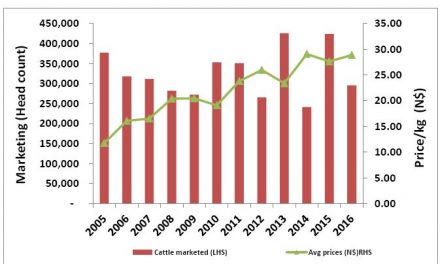
Private Equity to provide local investors with better opportunities

The implementation of new regulations requiring institutional investors to invest a minimum percentage of their assets into unlisted assets in Namibia, is set to provide a significant boost to private equity as well as benefiting investors and the local economy as a whole.
This is according to Erika van der Merwe, CEO of the Southern African Venture Capital and Private Equity Association (SAVCA), who spoke at a SAVCA event held in Windhoek this week, themed around the changing regulatory environment and its impact on local investors.
Van der Merwe said that, while research points to significant fundraising success for private equity funds in sub-Saharan Africa, with deal-flow picking up as a result, the private equity market in Namibia is relatively untapped.
“The new regulations will now provide Namibian long-term insurance companies and pension funds with the incentive to take advantage of this still-underutilised alternative asset class, ” she said.
Daudi Mtonga, Director at the private equity firm VPB and a SAVCA member, explained that the new regulations prescribe that long-term insurance companies and pension funds must now invest a minimum of 1,75% of their market value domestically into unlisted investments, with a maximum investment of 3,5%. This is a new asset class introduced by Regulations 28 and 29, since exposure to this asset class was not previously regulated. Some pension funds nevertheless had direct or indirect exposure to this alternative asset class.
Mtonga said that these new regulations provide a framework for the regulatory authority to regulate the unlisted investment asset class.
“This gives investors comfort that the capital allocated will be under the Regulator’s supervision. Furthermore, the regulation formally defines the nature of the asset class and creates appropriate benchmarks for fund management responsibilities in the market place,” he added.
He said that these regulations also form part of the government’s efforts to curb the outflow of capital and provide access to capital for domestic investment opportunities, which currently struggle to get access to funding – be it risk capital or debt funding.
Van der Merwe is of the opinion that the new regulatory regime will provide an opportunity to increase economic activity in the economy by channelling institutional capital into the unlisted private company market.
Meanwhile, as a result of the change in regulation, the industry has seen a number of Special Purpose Vehicles (SPVs) set up as private equity funds with related fund management companies, and these managers are in the process of raising capital.
According to the Namibia Financial Institutions Supervisory Authority (NAMFISA) 2015 Annual Report, it is estimated that close to N$3 billion will be allocated to this new asset class. The market expects the allocation by 31 December 2015.
Mtonga said he expects that the asset class will offer life-giving opportunities for investors in the coming years.
“The private business market represents the largest economic activity in the region, but in many markets, formal channels for the flow of capital to fund these activities are still limited. There definitely is a growing requirement for growth capital, with demand currently exceeding supply,” he said.












































